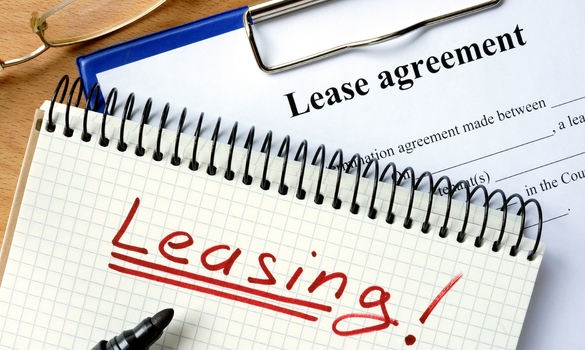
Landlords learn how to make a lease agreement so that they can ensure the safety of their business. After all, a legal lease agreement is a contract that binds tenants and landlords to its contents. If landlords like yourself include the correct content in their agreements, they can avoid dealing with costly, dragged-out legal disputes. When a problem arises, landlords can simply point out the appropriate point in the contract that was signed by both parties. The legal authorities will take it into account and solve the issue at hand quickly. If you want to protect your business, read on and learn how to make a lease agreement legal for your rental.
Document Involved Parties
In order to make a lease agreement legal, you need to document who is involved in the lease. Business owners sign various types of commercial leases. In your case, however, you will be working with people looking to rent your home. With that being said, you will, of course, need to include your contact information as the landlord. At a minimum, write down your full name, address and phone number. Then, request your future tenant’s information to input. Most agreements allow for three tenant names at the most. Include their contact information as well. This is a crucial element to making a lease agreement legal. If authority figures cannot determine who participated in the lease from a legal contract, they cannot take action should an issue arise. Thus, you need to include your information along with your tenants’ in a lease agreement.
Check Your Local Laws
Another necessary step to take to make a lease agreement legal is to check your local laws. Many landlords focus solely on national laws. As a result, they do not meet all of the correct standards and fail to generate effective contracts. The court cannot consider any provisions that do not match the local law’s standards. Hence, you need to research what your local law’s demands are. The most crucial ones revolve around deposits, the landlord’s responsibilities and how much rent you are allowed to charge. Conduct this research to ensure that you fill out all legal documents properly. In doing so, you will make a lease legal for your rental property.
Include Property Details
Additionally, include property details to make a lease legal. Write down the address of your rental along with the amenities you provide. If you previously created a listing for your property, this step should not be a difficult one to complete. You likely already have your amenities listed online. You also likely have the square footage measured and written down. Copy these pieces of information over into your contract after double checking that they are all accurate. Then, continue on to the next steps to make a lease legal for your rental.
Write Down Financial Requirements
Landlords write down tenants’ financial requirements in leases as well. These requirements include the security deposit amount and any other fees. In addition to clarifying the security deposit amount being charged, write down what you can use the deposit for once the lease is terminated. Moreover, state that the tenant cannot, under any circumstances, use their deposit payment for rent. This is true for all of their rent payments, including their last one. The fees that landlords usually include range from pet fees to maintenance costs. Add all of these to your lease to make it legally binding.
Add A Term Of Tenancy Section
Finally, add a term of tenancy section to make a lease legal. This portion of your lease states how long the tenant can stay at your rental property. Keep in mind that you can incorporate a renewal option into your lease so that your tenant can continue their stay. In contrast to renewal options, include termination terms as well. While it is advised to begin screening tenants prior to filling out legal documents, you do still need to take precautionary measures. State reasons that the tenant is allowed to terminate as well as reasons that you can terminate the contract. This is a critical part of a residential lease agreement if you want to protect yourself from financial struggle and your property from destruction.
Every landlord needs to learn how to make a lease legal if they want to protect their business. To begin the process, state your personal information as the landlord as well as your tenants’. Check your local laws to ensure that you meet both national and local requirements. Write down property details such as address and amenities. Include the security deposit amount and details. Lastly, add a term of tenancy section to your contract that includes termination and renewal rules. Put these elements into your contract to make a lease legal.
 Business First Family Business, Accounting, Finance, Investing, Marketing And Management
Business First Family Business, Accounting, Finance, Investing, Marketing And Management